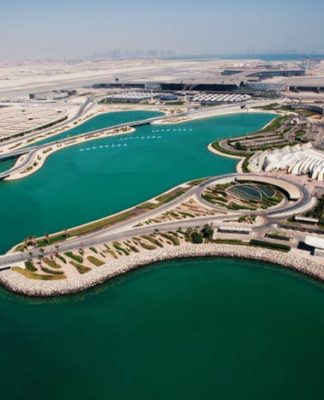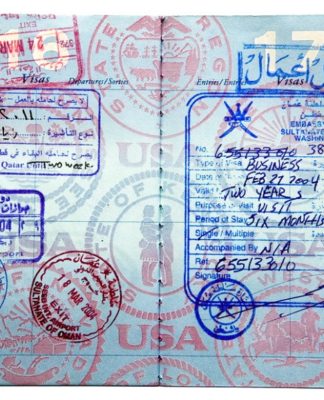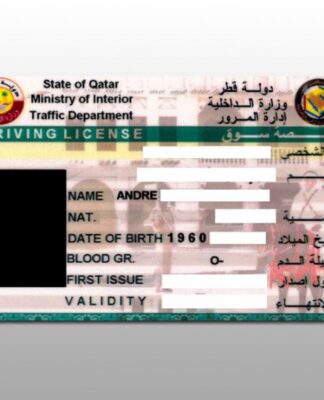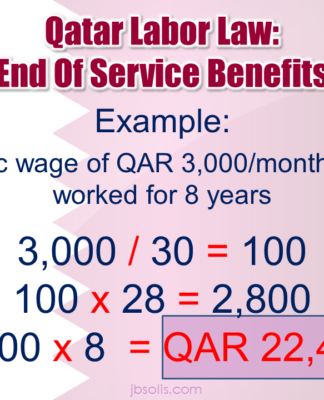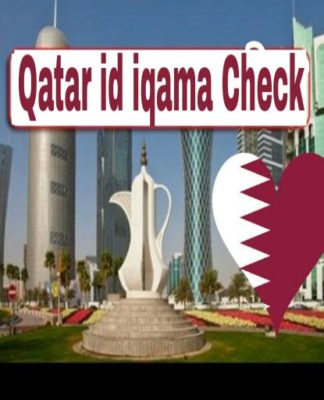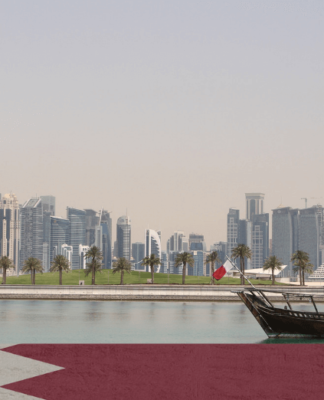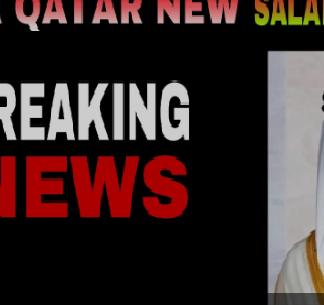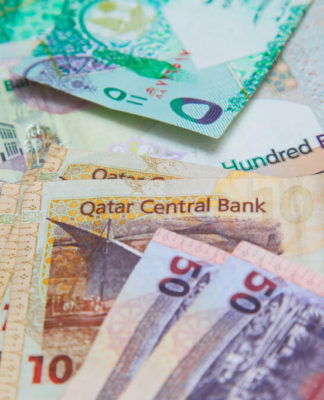/ Middle East
DIPLOMATIC TENSIONS
Could Hamas’s attack on Israel pose a threat for the region and Saudi-Israeli normalisation?
An unprecedented, deadly attack carried out by Hamas on Israel on Saturday has sparked fears of a broader regional escalation, with Saudi-Israeli normalisation particularly at risk, experts told FRANCE 24.
Issued on: 08/10/2023 – 18:03
5 min
An Israeli soldier mans a position in the northern Israeli town of Metula bordering Lebanon on October 8, 2023.
An Israeli soldier mans a position in the northern Israeli town of Metula bordering Lebanon on October 8, 2023. © Jalaa Marey, AFP
By:
Lara BULLENS
Follow
At the break of dawn on October 7, the Islamist militant group Hamas launched a multi-pronged attack on Israel. From its stronghold, the blockaded Gaza Strip, the group fired thousands of rockets into the country while its fighters infiltrated nearby communities, killing and capturing locals.
Almost fifty years to the day that marked the start of the Yom Kippur war in 1973, the attacks have killed more than 350 people in Gaza and more than 600 in Israel.
The incursion was met with fierce military retaliation from Israel, who launched rockets that razed entire neighbourhoods in Gaza and left hundreds dead.
The bloody battle is far from being over. On Sunday, as Hamas gunmen and Israeli security forces continued to fight in the south, Lebanon’s Hezbollah exchanged artillery and rocket fire with Israeli troops across northern borders.
The ongoing violence has sparked fears of regional escalation, with experts warning the situation could become a broader cross-border conflict.
A potential ‘multi-front war’
Lebanese militant group Hezbollah claimed responsibility for firing dozens of rockets and shells at a disputed area along Israel’s northern border on Sunday. Viewed as a major threat by Israel, the group has been backed by Iran for years and has close ties with Hamas.
Hezbollah’s senior official Hashem Safieddine said on Sunday the group’s “guns and rockets” were with Palestinian militants.
Experts fear the cross-border clashes could put pressure on Hezbollah to open a second front in northern Israel. In 2006, Hezbollah and Israel fought a 34-day war that left more than 1,200 dead in Lebanon – mostly civilians – and 160 in Israel, mostly soldiers.
“The risk of the conflict escalating is real, especially with what is happening on [Israel’s] northern border,” says David Rigoulet-Roze, editor of the research journal Orients Stratégiques. “There is a risk of a second front opening up, and that is very worrying.”
Israeli Prime Minister Benjamin Netanyahu on Saturday said Israel was at war and that its forces would exact a heavy price from its enemies. Although the direct implications of his words are not entirely clear, experts say the possibility of a major war cannot be ruled out.
“If Israel sends ground troops into Gaza or does something else drastic,” says Hussein Ibish, senior resident school at the Arab Gulf States Institute, “then Hezbollah could open up a front in Lebanon and defend their decision by saying they have no choice, that they must defend Palestine.”
“We could see Israel dragged into a multi-front war with various different resistance groups, most of them beholden to Iran,” explains Ibish.
For Myriam Benraad, a political scientist specialising in the Arab world at Schiller University in Paris, Hamas’s attack could escalate tensions between Israel and Arab countries more broadly.
In 2020, the so-called Abraham Accords mediated by the US normalised diplomatic relations between Israel, the United Arab Emirates, Bahrain and Morocco.
“Beyond the Israeli-Palestinian context, there is an Israeli-Arab context that is going to be extremely tense,” she says, stressing that “public opinion in Arab countries is still overwhelmingly pro-Palestinian”, even though the “proliferation of conflicts in the Middle East have pushed the issue of Palestine into the background”.
“Hamas, on the other hand, is pursuing a hardline approach aimed at preventing any normalisation with Israel.”
Saudi-Israeli relations at a standstill
Although Hamas has not been explicitly clear about why it decided to launch its offensive now, the attack has dealt a severe blow to Saudi Arabian and Israeli relations.
Since late September, the two countries have been engaged in talks led by US President Joe Biden to normalise diplomatic relations that could see Saudi Arabia recognise Israel’s statehood in exchange for US security guarantees.
Saudi Crown Prince Mohammed bin Salman gave a rare interview with right-wing broadcaster Fox News on September 20, praising the negotiations for bringing both countries “closer” to normalisation every day, but insisted that the treatment of Palestinians is a “very important” issue to be resolved.
Two days later, Netanyahu addressed a UN General Assembly claiming that Israel was “at the cusp” of a historic breakthrough that could lead to a peace agreement.
With Biden eager for a big diplomatic win ahead of the 2024 presidential elections, the talks were expected to continue in coming weeks. But now they have been cut short.
“This is clearly an effort to put a stop to the Saudi-Israeli normalisation process, and I think [Hamas] has a very good chance of doing that,” explains Ibish.
“It seems to me that Israel is in an impossible situation. Anything they do to try and prevent this from happening again is going to mean more suffering for Palestinians, greater occupation, greater restrictions and more brutality on the Israeli side,” says Ibish. “That is going to make it harder for the Saudis to move forward.”
Saudi Arabia’s foreign ministry said in a statement on Saturday that it had been warning of an “explosive situation” brought on by decades of “continued occupation and deprivation” of Palestinian rights, a reminder of the kingdom’s long-held support for Palestinians.
“These are all calculations that have inspired Hamas,” says Ibish.
Like its years-long backer Iran, the Hamas militant group does not recognise Israel’s right to exist as a state.
Iran supports the attacks
Standing behind Hamas, Hezbollah and the Islamic Jihad movement in Palestine, Iran has condemned any possibility of normalising relations between Saudi Arabia and Israel. The country is accused by Israel of supplying the militant groups with weapons and intelligence for years, and was one of the first countries to welcome Saturday’s offensive.
Daily newsletter
Receive essential international news every morning
Subscribe
Iranian President Ebrahim Raisi on Sunday said his country supported the legitimate defence of the Palestinian nation, adding that “the Zionist regime [Israel] and its supporters are responsible for instability in the region, and they must be held accountable in this matter”. He urged Muslim governments to “support the Palestinian nation”.
While it is too early to determine the exact role Iran played in mounting Saturday’s attack, experts agree that Hamas likely had the country’s support. “I very much doubt that Hamas alone could have prepared and decided to launch the strikes,” says Professor Karim Emile Bitar, a Middle East expert and Associate Fellow at the Geneva Centre for Security Policy.
“I think Iran has been growing increasingly nervous because of the ongoing Saudi-Israeli rapprochement,” Bitar says, which could explain “this turning point in the Israeli-Palestinian conflict”.
Whatever its involvement may be, Israel and Iran have been bitter rivals engaged in a shadow war for years. Now that Iran’s allies Hezbollah and Hamas are engaging in what could become a full-blown war with Israel, experts are on their toes, uncertain of what will come next.
But for Bitar, one thing is certain. “Judging from history of the past decades, we can only assume that the Israeli response will be absolutely devastating and that this is the beginning of a horrible war that would lead to hundreds, if not thousands, of victims,” the professor concludes.
















